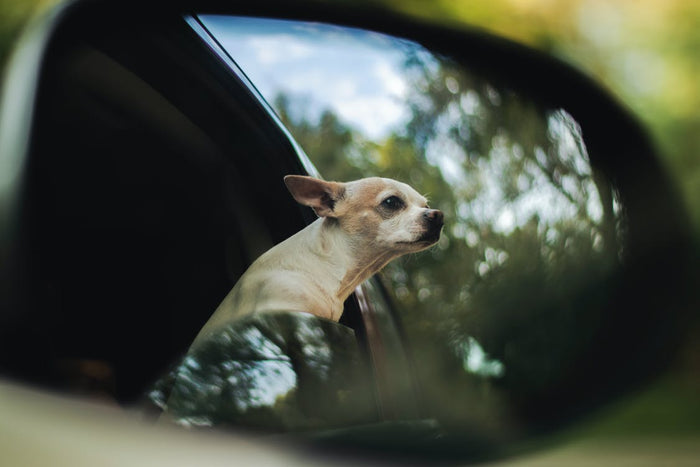
Symptoms:

Symptoms:
Common Causes:
Motion or carsickness is more common in younger dogs than adults. The reason may be due to the fact that the parts of the inner ear involved in balance are not fully developed. Puppies will often “outgrow” motion sickness by the time they are about 1 year old. Many adult dogs become anxious or even nauseous during travel due to a lack of conditioning and the overwhelming unusual stimuli associated with moving inside a vehicle. Dogs that travel only once or twice a year (typically when visiting the veterinarian) are not used to car rides and often associate the car ride with the stressful experience that follows. This causes heightened anxiety and stress, and may result in vomiting and diarrhea. Puppies that experience traumatic or frightening first rides may also associate future travel with that stressful event. Some dogs may have medical conditions such as middle or inner ear infections or vestibular disease (disease of the vestibular apparatus, located in the inner ear) that predispose them to nausea. Others may be taking medications that can cause vomiting or diarrhoea.
Natural Remedies:
It is important to limit the consumption of food prior to car rides if your dog is prone to motion sickness. You can feed treats with slippery elm two hours prior to travel to soothe the digestive tract. Spraying a calming mist can relax your dog and ease them while they travel. You can also feed chamomile cookies that will calm your dog and take the edge off travelling.